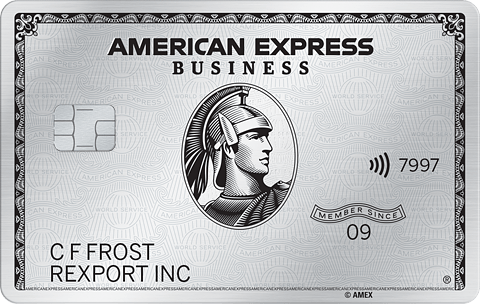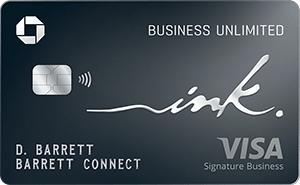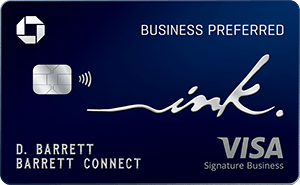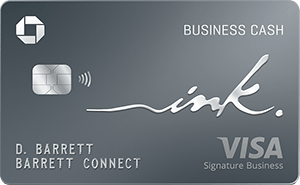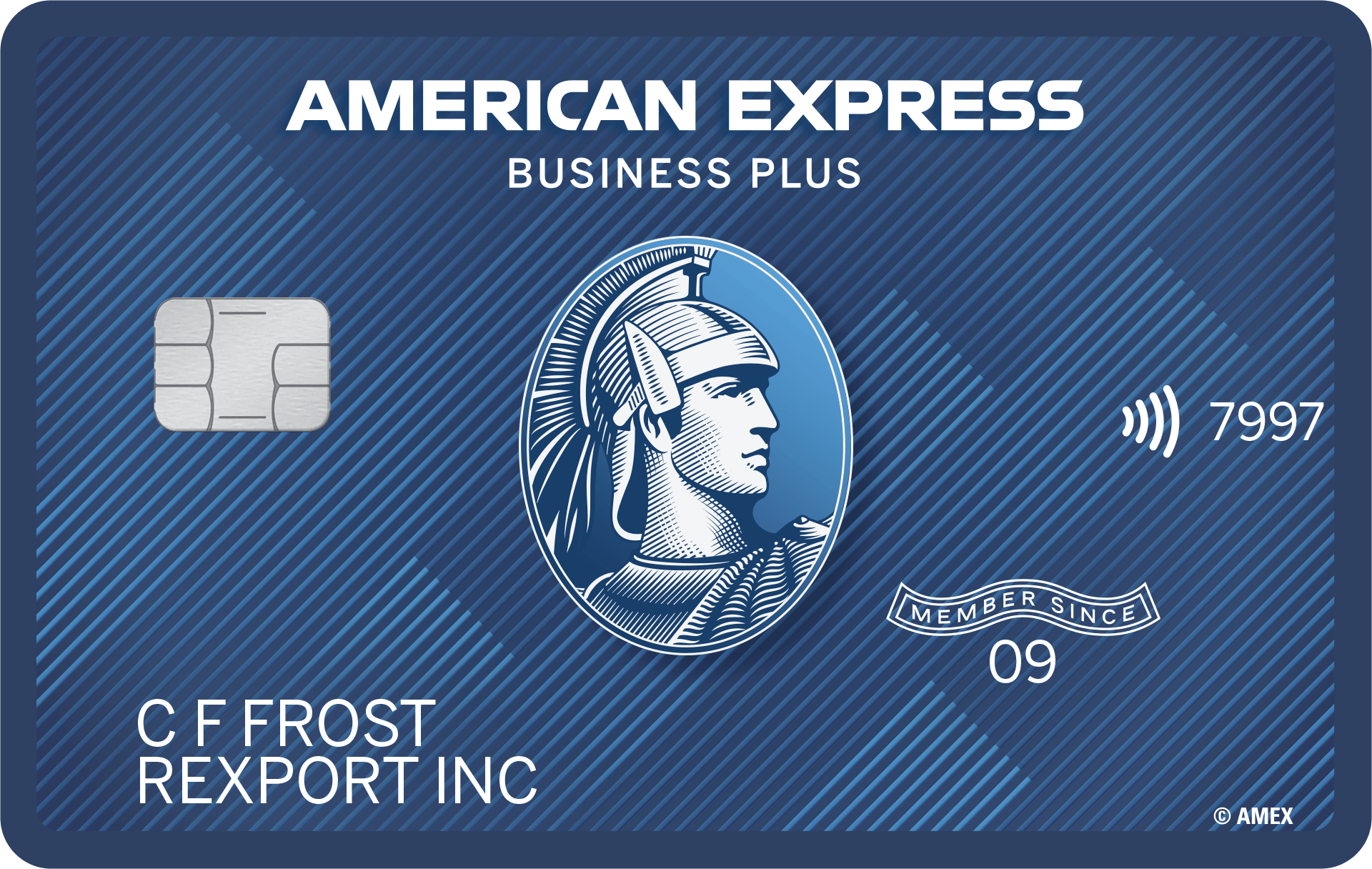This offer is no longer available on our site: Capital One Spark Classic for Business
The best business credit cards for startups cater to businesses that are looking to establish business credit and cut costs.
And the best card for you depends on what you’re looking for and what your business needs. Business cards can help keep your finances organized and help your build your business credit. Plus, depending on the business credit card you decide on, you can earn rewards or travel points from your business expenses.
Here are our picks for the eight best business credit cards for startups.
- Best for no personal guarantee: Brex Card
- Best for building business credit: Capital One Spark Classic for Business
- Best for business trips: The Business Platinum Card® from American Express
- Best for simple cash back: Ink Business Unlimited® Credit Card
- Best for getting the word out about your new business: Ink Business Preferred® Credit Card
- Best for employee cards: Ink Business Cash® Credit Card
- Best for borrowing money: The Blue Business® Plus Credit Card from American Express
Best for no personal guarantee: Brex Card
Here’s why: The Brex Card doesn’t hold you personally responsible for repaying the money your business spends and won’t impact your personal credit.
Unlike many business credit cards, it doesn’t require a personal guarantee. That means that as a founder, you aren’t legally obligated to take money out of your personal bank accounts to pay for your startup’s credit card bills. It can be tough to find a business credit card with no personal guarantee.
But this is technically a corporate card, and there are some additional requirements for the card that could make it tough to qualify for.
Best for building business credit: Capital One Spark 1% Classic
Here’s why: The Capital One Spark 1% Classic can help your startup build credit.
Many business credit cards cater to owners with excellent personal credit. This can make it difficult for people with less-than-stellar personal credit to build business credit.
But the Capital One Spark 1% Classic may be available to startup founders who are working on their personal credit.
And its $0 annual fee can make it more accessible for startups looking to build business credit.
Best for business trips: The Business Platinum Card® from American Express
Here’s why: The Business Platinum Card® from American Express features a welcome bonus of 150,000 Membership Rewards® points after you spend $20,000 on qualifying purchases within your first 3 months of account opening. Plus, earn a $500 statement credit after you spend $2,500 on qualifying flights with The Business Platinum Card® from American Express.
That might sound like a lot of money, but it’s not uncommon to spend more than you normally would when starting a new business.
The card gives you five points for every $1 spent on flights and prepaid hotels booked through amextravel.com, and 1.5 points for every eligible purchase of $5,000 or more and for eligible purchases in select business categories (on up to $2 million in purchases per card account per year). And you’ll get one point for every $1 spent on other purchases.
Beyond rewards for travel spending and other purchases, The Business Platinum Card® from American Express also makes traveling more comfortable and affordable.
- The card comes with American Express Global Lounge Collection access.
- You’ll receive a $200 airline fee credit each year (to pay for things like in-flight food, drinks or Wi-Fi with one qualifying airline you choose when enrolling).
- There are no foreign transaction fees.
The Business Platinum Card® from American Express has a lot going for it (some benefits may require enrollment). Ultimately, you’ll have to decide if these rewards and travel benefits outweigh the card’s $695 annual fee.
Best for simple cash back: Ink Business Unlimited® Credit Card
Here’s why: The Ink Business Unlimited® Credit Card allows you to spend more time growing your business and less time optimizing rewards.
With this flat-rate cash back card, you’ll earn 1.5% cash back on every purchase you make.
Instead of trying to keep up with a complicated rewards structure, you can stay focused on the things that matter to your business.
There’s also a $0 annual fee.
Best for getting the word out about your new business: Ink Business Preferred® Credit Card
Here’s why: The Ink Business Preferred® Credit Card can help you spread the word about your new business.
You’ll earn three points for every $1 you spend on up to $150,000 in combined purchases each account anniversary year in certain spending categories (after that, you’ll earn one point per $1). There are several categories to choose from, but one that stands out is advertising your startup online through search engines like Google and social media websites like Facebook.
That’s in addition to the 90,000 bonus points you’ll earn after spending $8,000 on purchases during the first 3 months after account opening.
Just know that the Ink Business Preferred® Credit Card comes with a $95 annual fee.
Best for employee cards: Ink Business Cash® Credit Card
Here’s why: Starting a business can be expensive — there’s no need to spend even more on credit cards.
Not only does the Ink Business Cash® Credit Card charge a $0 annual fee, but it also waives the fee that some business credit cards charge for employee cards.
So it’ll be even easier to earn rewards when you include the purchases your employees make on their employee cards without accounting for an individual card fee.
You’ll also get 5% cash back (on up to $25,000 spent in combined purchases each account anniversary year) at office supply stores and on internet, phone and cable services (then 1% back).
It’s a bonus you could easily reinvest into your startup.
Best for borrowing money: The Blue Business® Plus Credit Card from American Express
Here’s why: If you don’t have a ton of capital floating around, you might need to borrow money to grow your business.
Instead of taking out a loan, consider The Blue Business® Plus Credit Card from American Express, which features an introductory APR of 0% on purchases for the first 12 months after opening your card. (After that, you’ll be charged a variable APR of 17.49% - 27.49% on purchases.)
This could give you enough time to get your business off the ground before the regular interest rates for purchases kick in.
The Blue Business® Plus Credit Card from American Express also comes with a $0 annual fee.
How we picked the best business credit cards for startups
To write this review, we started by looking at some of the best business credit cards out there. Then we considered which features are most important to startups whose founders may be looking to build business credit.
Because your startup may be operating on a budget and be short on capital, you’re probably looking for ways to save money. And you may want the freedom to take risks without being on the hook personally if the business fails.
But we also recognize that each startup faces its own unique challenges, so different small-business credit card features might matter more to different founders. That’s why we came up with a variety of options for the best business credit cards for startups.
How to choose the best card for your business
The best business card is one you can qualify for with good terms. When shopping around for business cards, make sure to prequalify to get a better idea of if you’ll be approved and the terms you may be offered. Prequalifying involves a soft credit check, unlike a formal application which involves a hard credit pull. Keep in mind that prequalification does not guarantee approval.
The best business card for you also depends on your business needs. If your business doesn’t involve a lot of traveling, a cash back business card may serve your needs best. If you do travel for business, a business credit card with travel rewards could be the better option for you.
Some rewards cards have annual fees so be sure to compare any fees with how valuable the rest of the card may be to you. Some cards have high annual fees because they have a long list of perks but if you’re not going to use many of the perks, the card may not make sense for your business.If you expect to spend more money than usual to build up your business, look into business cards that have long intro APRs. That way, you can buy what you need for your business and pay off the purchases overtime.
How to make the most of your business credit card for startups
There are a few things you should understand about using a business credit card.
Opening a business card is a good way to build business credit. But even though you’re applying for a business credit card, the issuer may still check your personal credit scores. This means that your personal credit could play a role in whether you’re approved for the business card — and it could also be affected by your use of the card.
To complicate matters even more, many business credit cards hold you personally responsible for repaying the money your business spends. That means if you go out of business, the credit card issuer may still expect you to personally repay what the business owes.
That’s what makes the Brex Card so exceptional: It doesn’t require a personal guarantee from founders or affect their personal credit.
But because it’s a corporate card, the Brex Card may be difficult for certain startups to qualify for until their business is a little more established.
Look at some of the other business credit cards on this list to find one that’s a good fit for sole proprietors like freelancers and gig workers, who may have to rely on their personal credit history to get started.
Regardless of which business card you apply for, we recommend you use it only for business expenses. If you’re interested in understanding more about your business card, check out our introduction to business vs. personal credit cards.
FAQs about business credit cards for startups
It depends on your business goals. If you’re thinking to expand, hire employees, or are anticipating needing extra capital in the future, a business card may be a good idea. Plus, business cards make recordkeeping easier and can help build credit for your business — which may help you with business insurance or loans in the future.
Yes, new businesses can get business cards. As long as you are an authorized officer — like the owner or general manager — of the business, you can apply for a business credit card.
After registering your business and getting an employer identification number, you can open a business credit card and start building credit. For new businesses, on-time payments and low credit utilization can help build business credit. If you use vendors, establishing trade lines can help your credit as well if those payments are reported to the credit bureau.
Generally, any business owner or authorized officer of a business can apply for a business credit card. Just make sure to have a plan on how you’ll use your business credit card for business expenses.
Yes, you can use your employer identification number to get a business credit card. An EIN acts similarly to your social security number but for your business.
Business cards can help you establish business credit which can impact business insurance terms and working with vendors. Business cards can also help make recordkeeping easy if it is the only thing used to make business purchases. Plus, some cards may offer business card benefits that may be specific to business needs — like offering employee cards for free.



